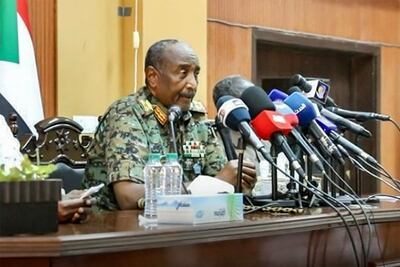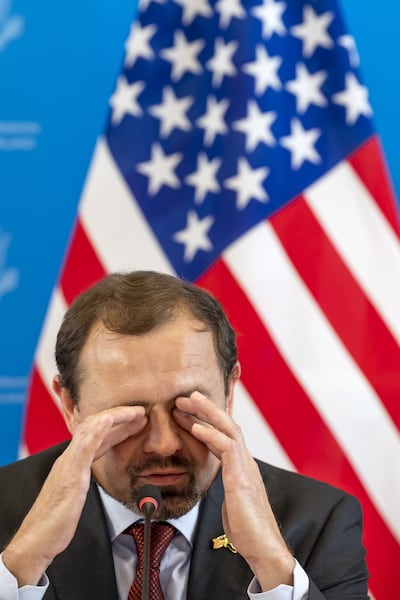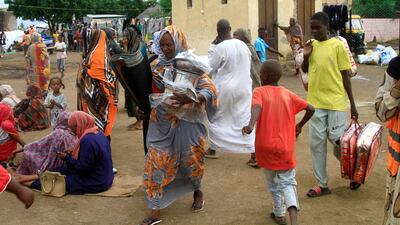Gen Abdel Fattah Al Burhan, the chief of the Sudanese Armed Forces, said he is ready to “fight for 100 years” against the paramilitary Rapid Support Forces (RSF) after the conclusion of US-sponsored peace talks in Geneva that yielded progress on aid deliveries.
The talks, which were boycotted by the army, were co-hosted by Saudi Arabia and Switzerland, with the African Union, Egypt, the UAE and the United Nations forming what is now known as the Aligned for Advancing Lifesaving and Peace in Sudan group, or Alps.
The talks, which began on August 14, ended without a ceasefire but with progress on aid access on key routes into Sudan, where about 25 million people – more than half the population – are facing acute hunger in one of the world's worst humanitarian crises after 16 months of civil war.
Participants in Geneva have said the talks could have produced more results, including progress towards a ceasefire, had the army participated.

“We will not squander the rights of the Sudanese people. We will fight for 100 years," Gen Al Burhan told Sudanese reporters on Saturday night in Port Sudan, the Sudanese government's temporary seat after much of the capital Khartoum was captured by the RSF during the early days of the war.
“This war will not end until this militia is eradicated and we have liberated every inch they desecrated. We are not prepared to listen to anything else and we are not going anywhere nor are we negotiating with anyone."
His justification for the boycott was his opposition to the creation of a forum replacing one jointly set up by Saudi Arabia and the US shortly after the war broke out in April 2023 and which brokered a series of short-lived ceasefires.
The old forum was in Jeddah, Saudi Arabia. It successfully persuaded the army and the RSF to sign an agreement in May 2023 on safeguarding civilians and for the RSF to leave private homes and state installations its fighters occupied.
Gen Al Burhan insists on implementing the May 2023 deal before participating in new peace negotiations, although his army, just like the RSF, has mostly ignored its tenets. Both sides are accused of war crimes by human rights organisations.

Also on Saturday, Gen Al Burhan criticised international mediators for what he said was their attempt to accord the RSF legitimacy and for insisting that he sends top army generals and not what he terms a delegation representing the state of Sudan to the Geneva talks.
The war in Sudan broke out after weeks of rising tension between the army and the RSF over their mandate in a hope-for-democratic Sudan turned to violence.
The war is also seen as a fight to control the vast, resource-rich Afro-Arab nation between Gen Al Burhan and his former ally Gen Mohamed Dagalo, the RSF commander
Together, they staged a coup in October 2021 that toppled a civilian-led government, derailing the country's democratic transition following the removal from power in 2019 of dictator Omar Al Bashir during an uprising.
There are no precise figures on the war's death toll but it is believed to be in the tens of thousands. The conflict also created one of the world's largest displacement crises, with about 10 million have fled their homes, including more than two million who sought refuge in neighbouring countries.

– – -
Al Shafie Ahmed contributed to this report from Kampala, Uganda.

